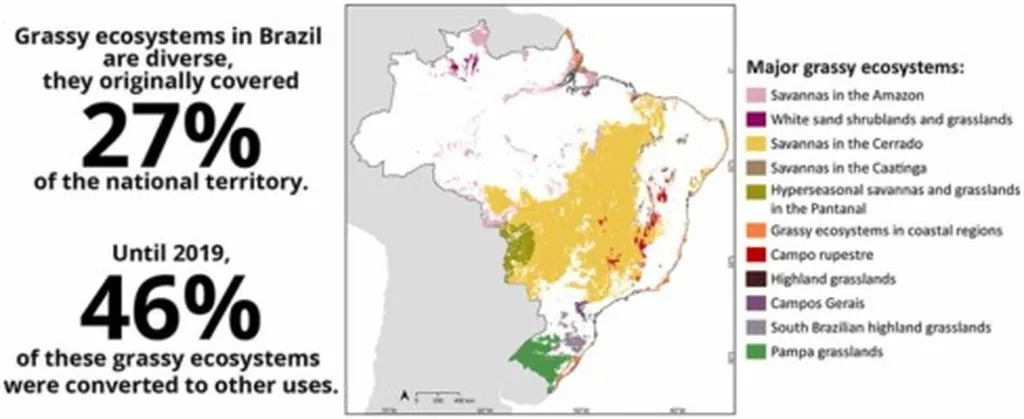In the heart of Brazil, a team of researchers led by Natashi Pilon from the Universidade Estadual de Campinas is challenging the conventional wisdom surrounding conservation and ecological restoration. Their work, published in the journal *Plants, People, Planet* (translated as “Plants, People, Planet”), sheds light on the often-overlooked importance of open ecosystems, such as grasslands and savannas, in the broader context of biodiversity conservation and climate change mitigation.
Pilon and her colleagues argue that the current focus on forests and trees, while crucial, paints an incomplete picture of the ecological landscape. “We need to broaden our perspective,” Pilon asserts. “Open ecosystems cover a significant portion of the Earth’s surface and harbor unique biodiversity that is just as deserving of our attention and protection.”
The implications of this research are particularly relevant to the energy sector, which is increasingly investing in renewable energy sources and carbon offset projects. Traditional approaches to ecological restoration often prioritize reforestation, but Pilon’s work suggests that this one-size-fits-all strategy may not always be the most effective or ecologically sound solution.
“Different ecosystems have different needs,” Pilon explains. “What works for a forest may not work for a savanna. We need to tailor our restoration efforts to the specific ecological context.”
This nuanced understanding of ecological restoration could significantly impact the energy sector’s approach to carbon offsetting and biodiversity conservation. By recognizing the value of open ecosystems, energy companies can make more informed decisions about where and how to invest in restoration projects.
Moreover, the research comes at a critical time, as the world prepares for the 16th Conference of the Parties (COP 16) to the United Nations Convention on Biological Diversity. The findings could influence global conservation strategies and shape the future of ecological restoration efforts worldwide.
Pilon’s work is a call to action for a more holistic approach to conservation. “We need to think beyond trees,” she urges. “The future of our planet depends on it.”
As the energy sector continues to evolve, the insights from Pilon’s research could prove invaluable in shaping more effective and ecologically responsible strategies for carbon offsetting and biodiversity conservation. By embracing a broader perspective on ecological restoration, we can work towards a more sustainable future for all.

